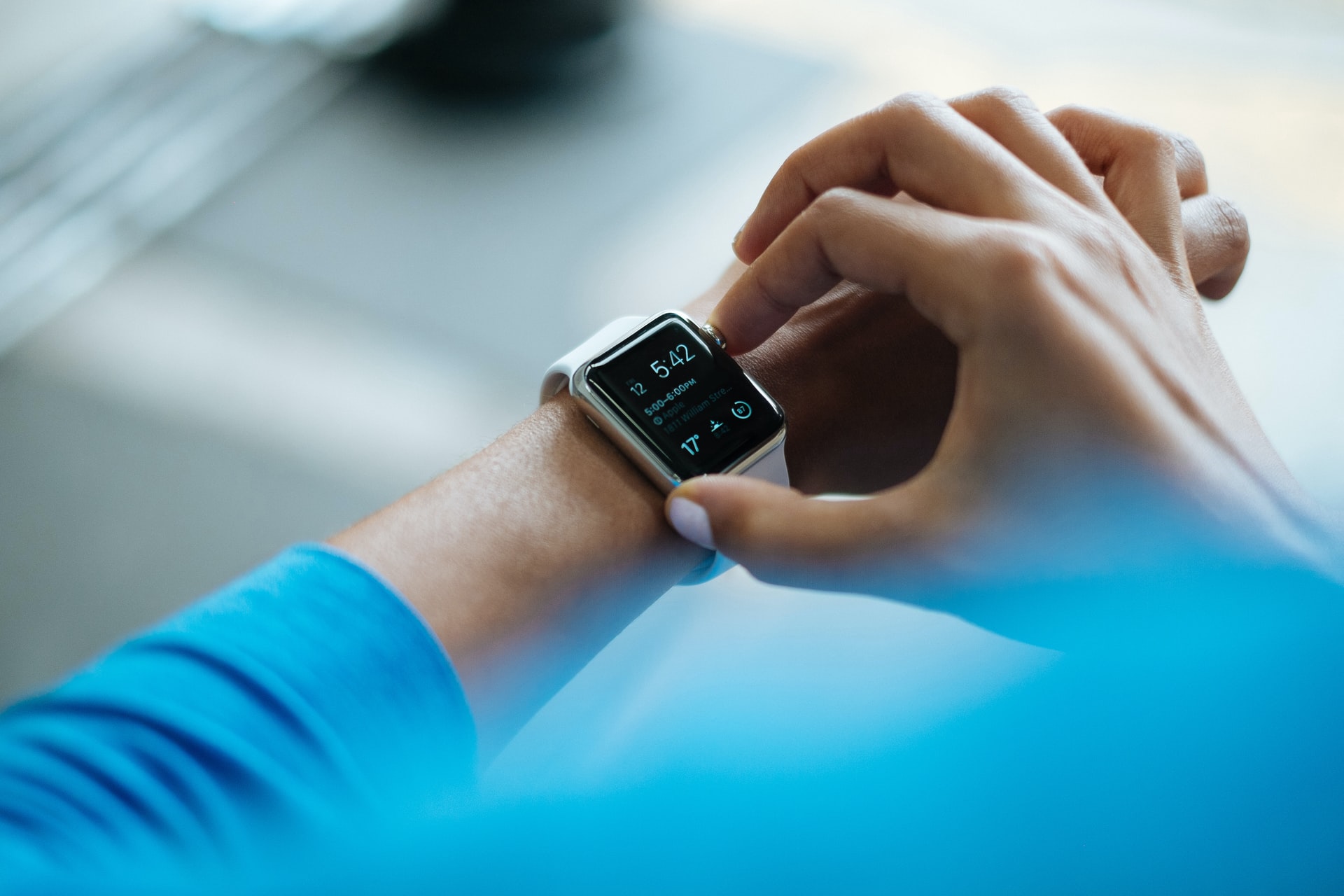Twenty years ago, I turned my childhood hobby of building and troubleshooting computers into a successful career in tech. So, it seemed natural to me that I would want to turn my hobby of being a “lifetime fitness enthusiast” into a second career and finally become a health and fitness coach.
After all, I’ve amassed great knowledge from working with a Registered Dietitian, a nutrition coach, becoming certified as a Precision Nutrition Level 1 Certification as a Nutrition Coach, working with 5 personal trainers, reading dozens and dozens of books, articles, studies, and essays from leading experts in the weight training and nutrition field. I’ve also had my own weight loss success story and built myself back from numerous orthopedic surgeries and injuries.
As a result of all of that, there are some things that I firmly believe about health and fitness, and these are things I think you should know too.
Strength training is a must
I started strength training because I had no upper body strength. I stick with it because I love the feeling of being strong.
As I get older, maintaining muscle mass keeps my bones healthy, and helps prevent age-related mobility issues. More importantly, strength training, more than anything else, keeps my weight under control. How?
When you weight train you are building (or maintaining) lean muscle mass. Lean muscle mass burns more calories at rest. The more muscle mass you have, the more calories you burn. You don’t get the same effect with a cardio-only workout.
Finally, muscle mass is denser than fat, meaning it takes up less space. Think of it this way; a 10-pound bowling ball takes up much less space than 10-pounds of feathers.
You can lose weight and still eat the food you love
I’ve you’re a regular reader of my blog posts, you know that I love cupcakes. I had a one-time dream of owning a cupcake franchise, but that’s just playing with fire.
You may also know that I achieved a 20-pound weight loss, while still eating cupcakes (and Raisinettes, ice cream, bagels, and Milk duds). Not every day, mind you.
We’ve done ourselves such a disservice by telling ourselves “I can’t eat x, I’m on a diet,” or “No, I can’t eat that.” The moment you tell a mischievous toddler they can’t do something is the exact moment they start plotting on how to do it. It’s the same way with us. When you tell yourself you “can’t” have something, the craving becomes uncontrollable.
Instead, give yourself permission from the get-go. Allow yourself the indulgence, just not all the time, and not in amounts that would cripple a buffalo. Be reasonable. I promise the second serving will taste just like the first. Savor the one serving you’re going to give yourself, enjoy, and move on.
Calorie deficit is what drives weight loss
Being in a calorie deficit means taking in fewer calories than your body burns daily. Your body burns calories to breathe, digest, defecate, fidget, walk, talk…you get the idea. It burns more calories when you get some movement and burns more when you engage in purposeful exercise.
To get into a calorie deficit, you need to know:
- The number of calories per day your body burns to maintain bodily functions, regular movement, and purposeful exercise
AND
2. The number of calories you actually eat (and drink!) per day
If you’re taking the willy-nilly approach to weight loss and winging it without solidly knowing any of these numbers, you’re setting yourself for failure…and probably a good bit of hunger or overeating.
The quality of your food matters
By ‘quality of your food, I don’t mean organic over non-organic, or fresh over frozen. I mean whole, nutrient-dense foods over heavily processed foods.
Nutrient-dense foods like fruits and vegetables contain fewer calories per serving than heavily processed foods and keep you fuller longer. This is a win-win when trying to lose weight since hunger is what grabs and drives you to the pantry for handfuls of unwholesome snacks.
For example, instead of choosing a blueberry muffin for breakfast, opt for a chopped hard-boiled egg and eggs whites on Ezekiel toast instead. Or a nut butter spread like almond butter.
If calories were currency, consistently adding a serving of fruits or vegetables to each meal gives you more bang for your buck in terms of the amount you can eat for the calories it costs.
Everyone should know what’s in their food
An apple will always be an apple. You sort of know what’s in it already. Or do you?
Knowing what’s in your food means understanding how to read food labels and understanding serving sizes. You should know that macronutrients are proteins, carbs, and fats, and know many of each are in what you eat and drink. You should know that every gram of protein is 4 calories, carbs are 4 calories and fats are 9 calories.
Why is this important to know?
Harkening back to the section on being in a calorie deficit and food quality, foods that are higher in protein and lower in fat will contribute to muscle growth and fat loss. Good carbs such as fruits, vegetables, and hearty grains will give you a boost of needed energy. In the right combinations, you can fuel your body for the results you are trying to achieve. You can’t do that by guessing.
Everyone should know what “bad” foods do to your body
I never considered myself a science nerd until I was going through the course curriculum for my PN Level 1 certification training. I totally geeked out on learning about our bodies’ cells and digestive system. That’s when I learned the devasting effect crappy food has on our bodies, and how controllable most of it is.
I’m not suggesting that everyone needs a course in biology. I think it’s sufficient to understand that your cells absorb, process, and filter foods the way a fetus in utero absorbs, processes, and filter the food its mother consumes. And as well all know, what you eat, drink and inhale is paramount to the health of an unborn child.
To take a step back, our bodies are comprised of several systems such as the digestive, nervous, and immune systems – just to name a few. Within these systems are organs, which have specific functions within those systems. All systems and organs have cells. Cells absorb and metabolize nutrients, regulate fluids and the exchange or solutes, grow, mature, and die, get rid of waste, and reproduce. Taken together, these tasks and other not mentioned functions of cells, are known as metabolism.
When we constantly assault our bodies with heavily processed, fat-laden foods, our bodies cells work triple time to sort out the nutrients it does not need, regulate the gases and fluids it cannot tolerate, and clear the waste it cannot process. Over time, this changes how well our cells function, and in many cases, their overall molecular structure.
Once we damage our cells on a molecular level, the cells supporting our bodies’ systems and organs begin to function sub-optimally and ultimately deteriorate. This is when disease sets in.
All health and fitness goals start in the mind and mindset is everything
Who’s a member of the Monday Club? You know, those of us who say, “I’m going to start my <insert diet or exercise program here> on Monday!”
The desire to start (or continually restart) a diet or exercise program is commendable and shows motivation. If you immediately focus on the end result, and you don’t see those results reflected in the scale, the mirror, or in the clothes you wear, you’re likely to become discouraged quickly and want to quit.
On the other hand, if your mindset is such that you’re focused on successfully making little changes consistently, that’s a win you can immediately celebrate. Add to that, the mindset that little changes add up to big results over time, you prolong the reward by acknowledging the climb is worth the effort.
Embarking on any health and fitness goal is a long-term iterative process where you won’t see immediate gains. Therefore, you need a mindset that supports the incremental steps of the overall effort.
You need a “why”
I feel like I buried the lead with this one. To me, this must come before everything else.
What is a “why”? A “why” is your purpose and your fundamental reason for seeking and maintaining a fit and healthy lifestyle. It’s powerful and should be of such magnitude that it pushes you through obstacles and setbacks and serves as your beacon to continue to drive you forward in pursuit of your goals.
I imagine this is vastly different from what you’ve become accustomed to believing. You need a goal so you know what you’re working towards. With a defined goal you can develop a plan, define your tasks, create a schedule, and execute. A goal keeps you focused on the outcome. If you complete all the steps you laid out, there’s no way you won’t meet your goal.
But what happens after you meet your goal? What comes next?
Your “why” goes much, much deeper. Your “why” is your purpose. Goals have outcomes but rely on a purpose. Otherwise, why would you continue to set goals? Without a purpose, those goals have no meaning and become unfulfilling, and eventually, you stop wanting to achieve something.
Final Words
If you ask a bevy of health and fitness experts what they wish people knew about health and fitness, I’d venture to say that some of these things that I’ve listed land on their list as well. Some would debate about whether you need to know what “bad” foods do to your body. To me, it’s about awareness and understanding the consequence of your choices. Even then, it may not make a difference. But at least you can’t say you didn’t know.
From my experience, I think these 8 things you should know about your health and fitness that if learned, can set you on a path of a sustainable lifestyle change.

